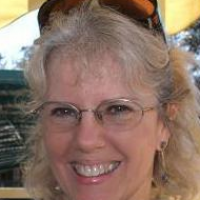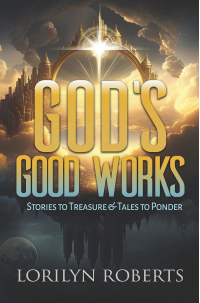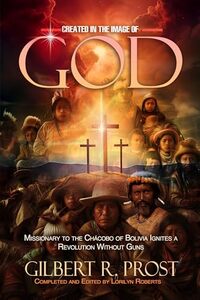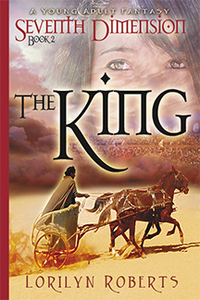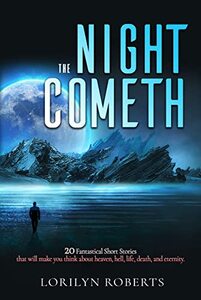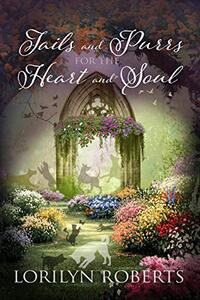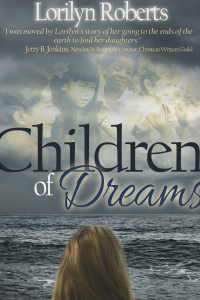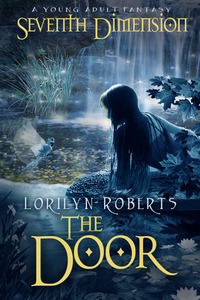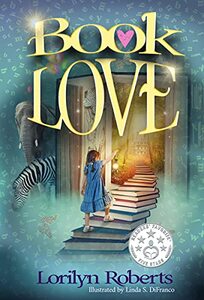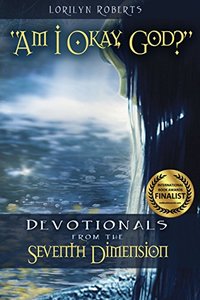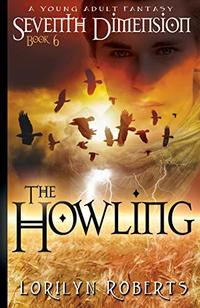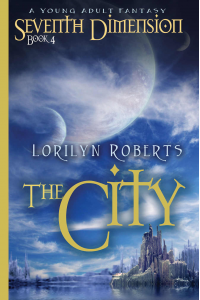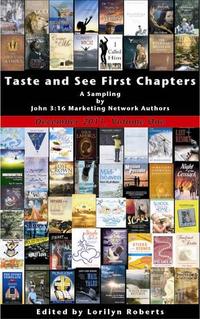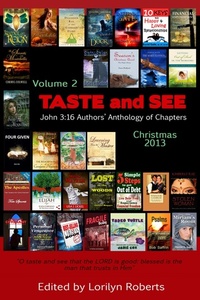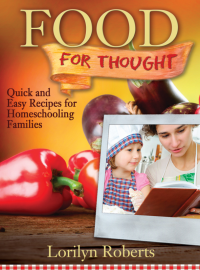Lorilyn Roberts's Books
Stay in the loop on books by Lorilyn Roberts. See upcoming and best-selling books by the author here. You'll also find the deals on books by Lorilyn Roberts.
** Please note that the information or price displayed here may not be the updated. Make sure to double-check the latest book price before buying books.
** Also, there might be other books by Lorilyn Roberts not listed on AllAuthor.
| Book |
|---|
Eighth Dimension: - Frequency: A Young Adult FantasyPublish: Sep 05, 2025Thriller Supernatural Suspense Christian Fiction Science Fiction Fantasy Teen & Young Adult more» |
God's Good Works: Stories to Treasure and Tales to PonderPublish: Oct 02, 2023Biographies & Memoirs Christian Nonfiction Religion & Spirituality |
Created in the Image of God: Missionary to the Chácobo of Bolivia Ignites A Revolution Without GunsPublish: Jun 12, 2024Religion & Spirituality |
The Donkey and the King (Donkey Series for Children Book 1)Publish: Sep 28, 2013Christian Fiction Children's |
Seventh Dimension - The King: A Young Adult Fantasy (Seventh Dimension Series, Book 2)Publish: Aug 08, 2014Series: Seventh DimensionSuspense Supernatural Suspense Historical Romance Fantasy Teen & Young Adult |
Tails and Purrs for the Heart and SoulPublish: Oct 22, 2020Biographies & Memoirs Christian Nonfiction Religion & Spirituality |
Children of Dreams, An Adoption MemoirBiographies & Memoirs Christian Nonfiction Religion & Spirituality Parenting |
Seventh Dimension - The Door: A Young Adult Fantasy (Seventh Dimension Series, Book 1)Publish: Oct 20, 2012Series: Seventh DimensionHistorical Mystery Supernatural Suspense Time Travel Romance Christian Fiction Fantasy Teen & Young Adult more» |
Seventh Dimension - The Castle: A Young Adult Fantasy (Seventh Dimension Series, Book 3)Publish: Jul 10, 2015Series: Seventh DimensionHistorical Mystery Suspense Historical Fiction Christian Fiction Fantasy Teen & Young Adult more» |
Seventh Dimension Series Mini Box Set: Books 1-3Publish: Sep 08, 2019Series: Seventh DimensionHistorical Mystery Thriller Suspense Supernatural Suspense Action & Adventure Time Travel Romance Historical Fiction Christian Fiction Science Fiction Fantasy Teen & Young Adult more» |
Am I Okay, God? Devotionals from the Seventh Dimension (Seventh Dimension Series)Publish: Dec 24, 2013Series: Seventh DimensionTeen & Young Adult Religion & Spirituality |
Seventh Dimension Series Bundle: A Young Adult FantasyPublish: Jun 14, 2019Series: Seventh DimensionSupernatural Suspense Action & Adventure Time Travel Romance Historical Fiction Christian Fiction Fantasy Teen & Young Adult more» |
Seventh Dimension - The Howling: A Young Adult Fantasy (Seventh Dimension Series, Book 6)Publish: Jun 01, 2019Series: Seventh DimensionThriller Mystery Supernatural Suspense Action & Adventure Christian Fiction Fantasy Teen & Young Adult more» |
Seventh Dimension - The Prescience: A Young Adult Fantasy (Seventh Dimension Series, Book 5)Publish: Nov 24, 2017Series: Seventh DimensionRomance Time Travel Romance Historical Fiction Women's Fiction Christian Fiction Fantasy Teen & Young Adult more» |
Seventh Dimension - The City: A Young Adult Fantasy (Seventh Dimension Series, Book 4)Publish: Aug 04, 2016Series: Seventh DimensionSuspense Romance Fantasy Teen & Young Adult |
Volume 2 Taste and See John 3 16 Authors' AnthologyPublish: Dec 13, 2013 |
Food for Thought: Quick and Easy Recipes for Homeschooling FamiliesPublish: Aug 08, 2013Cooking Parenting |
Lorilyn Roberts's Series in Order
It's exciting to find a book series to follow! Discover the whole new world of book series created by Lorilyn Roberts.
** Also, there might be other book series by Lorilyn Roberts not listed on AllAuthor.
Lorilyn Roberts's Awards and Achievements
-


Readers Favorite Book Awarad Winner (Bronze)
2025God's Good Works: Stories to Treasure and Tales to Ponder
award -


First Place Anthology Christian Indie Awards
2025God's Good Works: Stories to Treasure and Tales to Ponder
award -
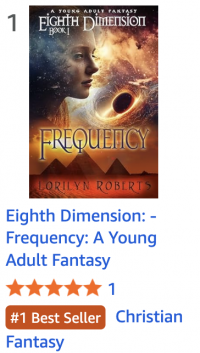

#1 Best Seller Amazon Christian Fantasy
2025Eighth Dimension: - Frequency: A Young Adult Fantasy
achievement -


Third Place Literary Awards Winner, Christian
2024God's Good Works: Stories to Treasure and Tales to Ponder
award -


FAPA Gold Book Awards Winner
2024God's Good Works: Stories to Treasure and Tales to Ponder
award -
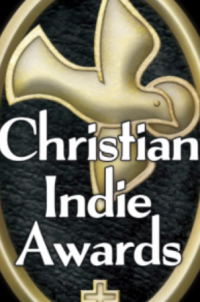

Christian Indie First Place Anthology Award
2024The Night Cometh: 20 Fantastical Short Stories
award -
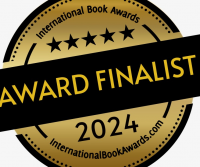

International Book Award Finalist for Nonfiction Book Cover Design
2024God's Good Works: Stories to Treasure and Tales to Ponder
award -


International Book Awards Finalist
2023The Night Cometh: 20 Fantastical Short Stories
award -


FAPA Gold Book Awards Winner for Anthology
2023The Night Cometh: 20 Fantastical Short Stories
award -


Book Excellence Award Finalist
2022Tails and Purrs for the Heart and Soul
award -


Christian Indie Book Award Winner
2022Tails and Purrs for the Heart and Soul
award -
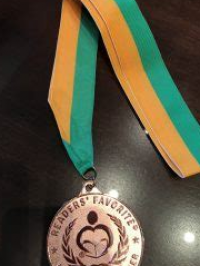

Readers' Favorite Book Award Animal Non-Fiction
2021Tails and Purrs for the Heart and Soul
award -


Book Excellence Award Finalist
2020Seventh Dimension - The Howling: A Young Adult Fantasy (Seventh Dimension Series, Book 6)
award -


International Book Award Finalist
2020Seventh Dimension - The Howling: A Young Adult Fantasy (Seventh Dimension Series, Book 6)
award -
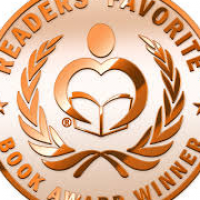

Readers' Favorite Award Winner
2019Seventh Dimension - The Howling: A Young Adult Fantasy (Seventh Dimension Series, Book 6)
award -


Silver Global Ebook Award
2019Seventh Dimension - The Prescience: A Young Adult Fantasy (Seventh Dimension Series, Book 5)
award -
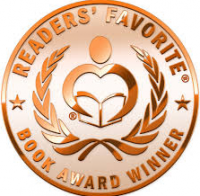

Readers' Favorite Award Winner
2018Seventh Dimension - The City: A Young Adult Fantasy (Seventh Dimension Series, Book 4)
award -


Best Christian Book Fantasy List
2018Seventh Dimension - The Door: A Young Adult Fantasy (Seventh Dimension Series, Book 1)
achievement -


Best Christian Book Fantasy List
2018Seventh Dimension - The King: A Young Adult Fantasy (Seventh Dimension Series, Book 2)
achievement -


Eric Hoffer Award Finalist
2018Seventh Dimension - The Prescience: A Young Adult Fantasy (Seventh Dimension Series, Book 5)
award -


Best Christian Book Fantasy List
2018Seventh Dimension - The Castle: A Young Adult Fantasy (Seventh Dimension Series, Book 3)
achievement -


Best Christian Book Fantasy List
2018Seventh Dimension - The City: A Young Adult Fantasy (Seventh Dimension Series, Book 4)
achievement -


Global ebooks Silver Award Winner
2017Seventh Dimension - The City: A Young Adult Fantasy (Seventh Dimension Series, Book 4)
award -


FAPA President's Book Award
2017Seventh Dimension - The City: A Young Adult Fantasy (Seventh Dimension Series, Book 4)
award -
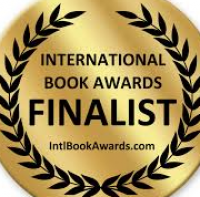

International Book Award Finalist
2017Seventh Dimension - The City: A Young Adult Fantasy (Seventh Dimension Series, Book 4)
award -


Book Excellence Award Winner
2017Seventh Dimension - The City: A Young Adult Fantasy (Seventh Dimension Series, Book 4)
award -


International Book Award Finalist
2016Seventh Dimension - The Prescience: A Young Adult Fantasy (Seventh Dimension Series, Book 5)
award -


New York Book Festival Honorable Mention
2016Seventh Dimension - The Castle: A Young Adult Fantasy (Seventh Dimension Series, Book 3)
award -


New England Book Festival Honorable Mention
2016Seventh Dimension - The Castle: A Young Adult Fantasy (Seventh Dimension Series, Book 3)
award -


Literary Classics Award Winner
2016Seventh Dimension - The City: A Young Adult Fantasy (Seventh Dimension Series, Book 4)
award -


Readers' Favorite Honorable Mention
2016Seventh Dimension - The Castle: A Young Adult Fantasy (Seventh Dimension Series, Book 3)
award -


Great Southeast Book Festival Winner for YA
2016Seventh Dimension - The Castle: A Young Adult Fantasy (Seventh Dimension Series, Book 3)
award -


Global eBook Award Winner, Bronze, Fantasy/Historical
2016Seventh Dimension - The Castle: A Young Adult Fantasy (Seventh Dimension Series, Book 3)
award -


Winner BooksAndAuthors.com - Young Adult Spirituality
2015Seventh Dimension - The Castle: A Young Adult Fantasy (Seventh Dimension Series, Book 3)
award -


USA Best Book Award Finalist: Religious Fiction
2015Seventh Dimension - The Castle: A Young Adult Fantasy (Seventh Dimension Series, Book 3)
award -


Readers' Favorite Book Award for YA
2015Seventh Dimension - The King: A Young Adult Fantasy (Seventh Dimension Series, Book 2)
award -


Winner National Indie Excellence Award
2015Seventh Dimension - The King: A Young Adult Fantasy (Seventh Dimension Series, Book 2)
award -
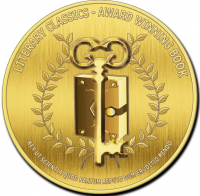

Literary Classics Award Winner
2015Seventh Dimension - The Castle: A Young Adult Fantasy (Seventh Dimension Series, Book 3)
award -


International Book Award
2015Seventh Dimension - The King: A Young Adult Fantasy (Seventh Dimension Series, Book 2)
award -


INDIEFAB Book of the Year Awards Finalist
2015Seventh Dimension - The Castle: A Young Adult Fantasy (Seventh Dimension Series, Book 3)
award -


Finalist Best Indie Book Award for YA Fiction
2015Seventh Dimension - The King: A Young Adult Fantasy (Seventh Dimension Series, Book 2)
award -


Literary Classics Award Winner
2014Seventh Dimension - The King: A Young Adult Fantasy (Seventh Dimension Series, Book 2)
award -


International Book Award Finalist
2014Am I Okay, God? Devotionals from the Seventh Dimension (Seventh Dimension Series)
award -


Finalist in the USA Book Awards for religious fiction
2014Seventh Dimension - The King: A Young Adult Fantasy (Seventh Dimension Series, Book 2)
award -


International Book Award Finalist
2013Seventh Dimension - The Door: A Young Adult Fantasy (Seventh Dimension Series, Book 1)
award -


Selah Book Award Finalist
2013Seventh Dimension - The Door: A Young Adult Fantasy (Seventh Dimension Series, Book 1)
award -
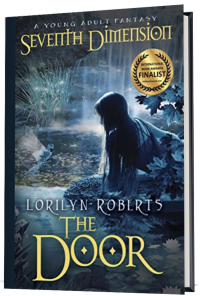

Grace Book Award
2013Seventh Dimension - The Door: A Young Adult Fantasy (Seventh Dimension Series, Book 1)
award -


Book Goodies Best Cover
2013Seventh Dimension - The Door: A Young Adult Fantasy (Seventh Dimension Series, Book 1)
award -


Best-Seller on Amazon
2012Seventh Dimension - The Door: A Young Adult Fantasy (Seventh Dimension Series, Book 1)
achievement
Lorilyn Roberts has earned excellence awards over time. Here is the glimpse of the accolades clinched by the author.
Lorilyn Roberts Interview On 27, Jun 2019

Lorilyn Roberts's Favorite Quotes
View allLorilyn Roberts is a thinker and a doer. These are the quotes by famous personalities the author resonates with.
Ask Lorilyn Roberts a Question
Have brimming questions to ask author Lorilyn Roberts? Ask whatever you like, but keep it appropriate.
** Please note that unanswered questions will not appear on the page. Refrain from posting promotional messages.
